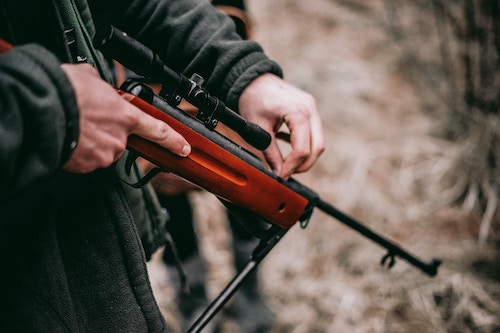If you are planning to go hunting and are in the process of selecting a firearm, it is crucial to be aware of the legal requirements associated with owning and using a firearm for this purpose. Ignoring these considerations can lead to severe legal consequences. Here are some key points to keep in mind:
1. Research Local Laws and Regulations
The first step in selecting a firearm for hunting is to thoroughly research the applicable laws and regulations in your jurisdiction. Specific requirements can vary depending on your location, so it is essential to understand what is legally permitted and what is prohibited.
2. Obtain the Necessary Licenses and Permits
In many areas, it is mandatory to obtain licenses and permits before you can legally hunt with a firearm. These licenses and permits demonstrate that you have met the required criteria and have the necessary knowledge and skills to handle a firearm safely. Failure to possess the appropriate documentation can lead to penalties and the confiscation of your firearm.
3. Comply with Minimum Age Restrictions
Most jurisdictions have minimum age requirements for owning or using firearms. Ensure that you meet the minimum age criteria set forth by the local laws before proceeding with your firearm selection. Hunting with a firearm as a minor may require additional supervision or permissions from legal guardians.
4. Adhere to Firearm Type and Caliber Restrictions
While hunting, there may be restrictions on the types of firearms and calibers that are allowed. Certain areas may limit specific firearms due to safety concerns or wildlife preservation efforts. Make sure to consult the local regulations to determine the permissible firearm types and calibers for hunting in your area.
5. Safe Storage and Transportation of Firearms
Storing and transporting firearms safely is essential for both your security and compliance with the law. Follow local guidelines for secure storage and transportation methods, including the use of trigger locks, locked safes, or separate storage areas in vehicles. Failure to store or transport firearms appropriately may result in legal consequences.
6. Understand Hunting Seasons and Restricted Areas
Hunting seasons and restricted areas are established to protect wildlife populations and manage hunting activities effectively. Familiarize yourself with the designated hunting seasons and any restricted areas where hunting is not permitted. Hunting outside of designated seasons or in restricted areas can result in severe penalties.
7. Respect Ethical Considerations and Wildlife Conservation
Apart from legal requirements, it is crucial to show respect for ethical considerations and wildlife conservation efforts. This involves following guidelines on fair chase, responsible hunting practices, accurate shooting distances, and proper disposal of remains. Understanding and adhering to these ethical principles contributes to the sustainability of hunting and the preservation of wildlife populations.
Overall, choosing a firearm for hunting requires careful consideration of the legal requirements associated with firearm ownership and usage. Conduct thorough research, comply with local laws and regulations, obtain the necessary licenses and permits, and prioritize safe and responsible hunting practices. By doing so, you can enjoy your hunting experience without legal complications while contributing to wildlife conservation efforts.


